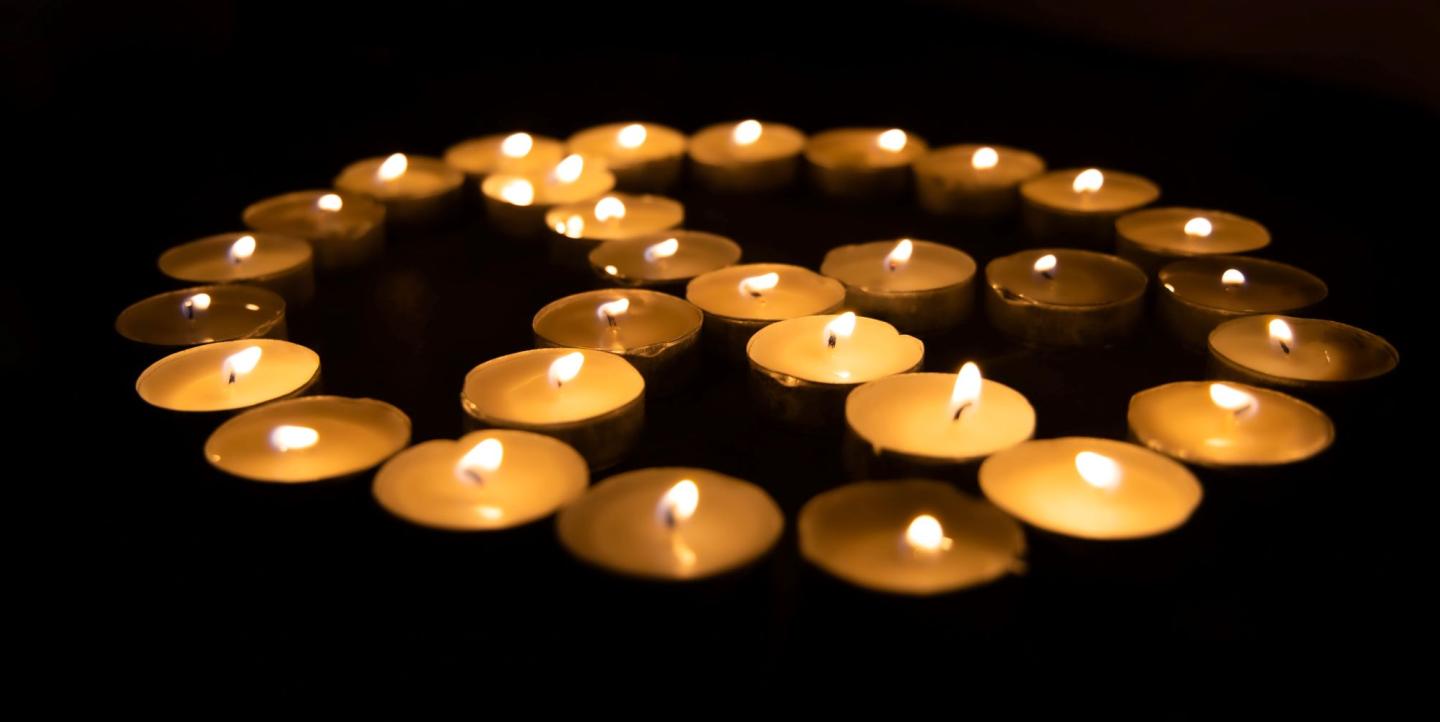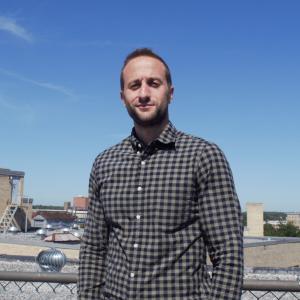In December, two journalists won the Nobel Peace Prize for the first time since before World War II. One of the awardees was Filipino-American journalist Maria Ressa, whose critical reporting of Philippines President Rodrigo Duterte has brought her under constant attack from his administration, and made her the target of unrelenting online violence.
Unfortunately, the challenges Ressa has experienced are increasingly commonplace for journalists globally. In accepting the 2021 Nobel Peace Prize, Ressa mentioned colleagues around the world who have been similarly targeted for their journalism.
“I remember the brutal dismemberment of Jamal Khashoggi, the assassination of Daphne Caruana Galizia in Malta, Luz Mely Reyes in Venezuela, Roman Protasevich in Belarus (whose plane was literally hijacked so he could be arrested), Jimmy Lai languishing in a Hong Kong prison, Sonny Swe, who after getting out of more than seven years in jail started another news group...now forced to flee Myanmar,” said Ressa in her speech. “And in my own country, 23-year-old Frenchie Mae Cumpio, still in prison after nearly two years, and just 36 hours ago the news that my former colleague, Jess Malabanan, was shot dead.”
For Venezuelan journalist Luz Mely Reyes, the significance of being named by Ressa cannot be understated.
“By citing us, Maria not only did it nominally, but also put the spotlight on Venezuelan journalism, and the threats and attacks that the exercise of our profession has experienced,” Reyes told IJNet. “In Venezuela there are journalists who have been exiled for doing their job, there are journalists who have been prosecuted and there are journalists who have become unemployed due to the attacks on their media.”
Here’s more on the eight journalists Ressa named in her Nobel Peace Prize speech.
Jamal Khashoggi, Saudi Arabia
For years, Saudi journalist Jamal Khashoggi had been close with the royal family in Saudi Arabia, even serving as a government adviser at one point. With time, however, he became increasingly critical of the government, and especially Crown Prince Mohammed bin Salman. In 2017, Khasoggi left his home country for the U.S. after fearing he would be arrested as part of a crackdown on journalists.
While based in the U.S., Khashoggi wrote a monthly column for the Washington Post critical of the increasingly censorious policies enacted by bin Salman. Khashoggi was killed in October 2018 while visiting the Saudi consulate in Istanbul, Turkey, in an attack likely ordered by bin Salman, according to a U.S. intelligence report.
Daphne Caruana Galizia, Malta
Investigative journalist Daphne Caruana Galizia dedicated her career to reporting on financial crimes in the small Mediterranean island nation of Malta. Her reporting exposed public officials and organized criminals over the years.
In 2017, she was killed by a car bomb. A public inquiry found Malta’s former prime minister Joseph Muscat and his government to blame for the murder, describing the impunity and weakened rule of law that had taken root in the country. This, the report found, created an environment that led her murderers to believe there would be little consequence for their actions.
Roman Protasevich, Belarus
In May 2021, Belarusian officials diverted a Ryanair plane flying over the country’s airspace for one sole reason: to arrest Roman Protasevich, the co-founder and former editor of the NEXTA Telegram channel. Used by citizens to organize demonstrations in Belarus, government officials had declared NEXTA an “extremist medium.” Protasevich fled Belarus in 2019, and continued to report on the Lukashenko regime from Lithuania.
After his plane was hijacked, Protasevich was charged on several criminal counts, including for “organizing civil unrest.” Ryanair CEO Michael O’Leary called the incident “a case of state-sponsored hijacking [and] state-sponsored piracy.”
Jimmy Lai, Hong Kong
As press freedom declines in Hong Kong, journalist and media entrepreneur Jimmy Lai has been a prime target. In June 2021, police raided his pro-democracy newspaper, the Apple Daily, and arrested Lai. The Apple Daily halted operations later that month.
Hong Kong officials have levied a series of charges against Lai intended to silence his reporting, including several under Hong Kong’s new national security law, imposed on the city by China, for which he risks spending the rest of his life in prison. Already, he is currently serving a 20-month prison sentence for allegedly taking part in illegal demonstrations.
Sonny Swe, Myanmar
Sonny Swe is the CEO of Frontier Myanmar, an independent news outlet operating in a country now under military rule following a coup in early 2021. Before creating Frontier Myanmar, Swe had been jailed for his work as a journalist under a previous military government. Like Ressa, Swe has warned against the dangers of mis- and disinformation to society, and the enabling role Big Tech, and especially Facebook, have played to foment it.
Frenchie Mae Cumpio, Philippines
The young journalist and human rights activist Frenchie Mae Cumpio was arrested in February 2020 for allegedly possessing illegal firearms. Cumpio has denied the charges, which her lawyers reportedly believe were planted to justify her illegal arrest.
Cumpio’s reporting in the years leading up to her arrest covered the killing of farmers in the country, violent conflict stemming from policies enacted by President Duterte, including the deployment of additional military forces in suspected rebel zones, and more.
Jess Malabanan, Philippines
Filipino journalist Jesus “Jess” Malabanan who had reported for the Manila Standard and Reuters, among other outlets, was killed in a drive-by shooting in early December 2021. He had contributed to Reuters’ reporting on President Rodrigo Duterte’s “war on drugs,” which won the news agency a Pulitzer Prize in 2018.
The threats he received due to this reporting, however, had forced him into hiding on the island of Samar, where he was shot dead while at his family’s store. According to Reporters Without Borders, 33 journalists have been murdered in the Philippines in the last decade.
Luz Mely Reyes, Venezuela
Luz Mely Reyes is the co-founder and CEO of Efecto Cocuyo, an independent media outlet based in the Venezuelan capital of Caracas. She and fellow co-founder Laura Weffer created Efecto Cocuyo in response to crackdowns on independent journalism in the country. Reyes herself was arraigned by state prosecutors in 2017 after President Nicolas Maduro objected to a story about gasoline shortages published by Diario 2001, where she worked as editor-in-chief.
Over the years, Reyes has conducted investigative reporting with a focus on political and elections coverage, all amid deteriorating press freedom in Venezuela.
Press freedom is declining globally. Its consequences don’t just affect journalists and media organizations — they reverberate throughout societies, weakening democracies, the rule of law and more. To this end, Reyes hopes the 2021 Nobel Peace Prize serves as a wake-up call.
“There is an authoritarian tendency that attacks journalists and places them as enemies. We have seen it in the U.S. and in other countries, such as mine or the Philippines. We know that each silenced journalist affects thousands of citizens in their right to be well informed,” she said. “Hundreds of journalists have lost their lives, many more have been threatened or assaulted, and who knows how many have decided to leave the profession or remain silent to preserve their integrity. I hope that this award will help states not to see attacks on journalists and the media as a secondary issue.”
Photo by Joshua Sukoff on Unsplash.


